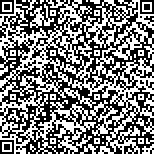| 摘要: |
|
| 关键词: |
| DOI: |
| Received:December 01, 2009Revised:June 08, 2010 |
| 基金项目:This work was supported by the National Natural Science Foundation of China (No. 60774077), the National High Technology Development Plan (863) of China (No. 2007AA04Z226), the Beijing Municipal Education Commission Key Project (No. KZ200810005002) and the Beijing Natural Science Foundation Project (No. 4102011). |
|
| Bionic autonomous learning control of a two-wheeled self-balancing flexible robot |
| Jianxian CAI,Xiaogang RUAN |
| (School of Electronic Information and Control Engineering, Beijing University of Technology; Institute of Disaster Prevention) |
| Abstract: |
| This paper presents an OCPA (operant conditioning probabilistic automaton) bionic autonomous learning system based on Skinner’s operant conditioning theory for solving the balance control problem of a two-wheeled flexible robot. The OCPA learning system consists of two stages: in the first stage, an operant action is selected stochastically from a set of operant actions and then used as the input of the control system; in the second stage, the learning system gathers the orientation information of the system and uses it for optimization until achieves control target. At the same time, the size of the operant action set can be automatically reduced during the learning process for avoiding little probability event. Theory analysis is made for the designed OCPA learning system in the paper, which theoretically proves the convergence of operant conditioning learning mechanism in OCPA learning system, namely the operant action entropy will converge to minimum with the learning process. And then OCPA learning system is applied to posture balanced control of two-wheeled flexible self-balanced robots. Robot does not have posutre balanced skill in initial state and the selecting probability of each operant in operant sets is equal. With the learning proceeding, the selected probabilities of optimal operant gradually tend to one and the operant action entropy gradually tends to minimum, and so robot gradually learned the posture balanced skill. |
| Key words: Two-wheeled flexible robot Poster balance control Operant conditioning Probabilistic automaton Bionic autonomous learning |

